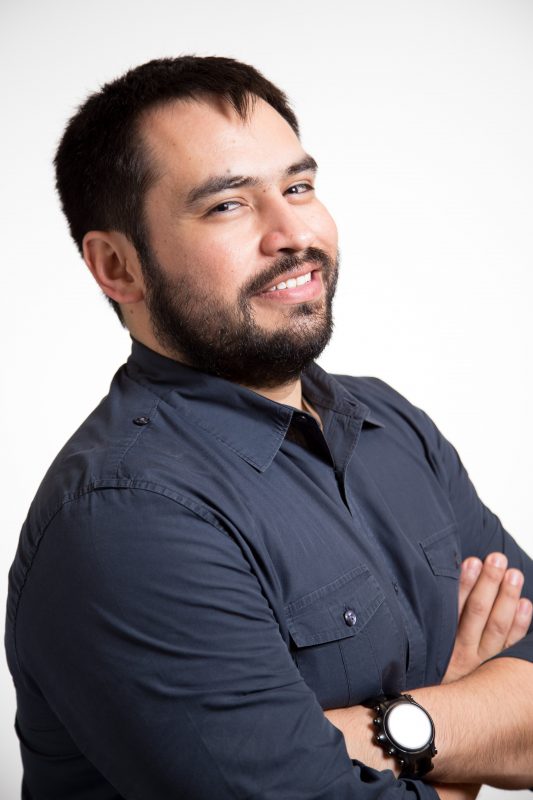Upon earning their Ph.D.’s in Materials Science and Engineering from UT Dallas, David Arreaga and Adrian Avendano seized the opportunity to enter the rapidly growing flexible electronics industry they had come to know having worked at the university’s Advanced Polymer Research Lab. In 2014, they established their startup company, Ares Materials, and are now developing the technology necessary to enable large area microfabrication of flexible electronics. With a new lab space in The Institute for Innovation and Entrepreneurship’s Venture Development Center, I decided to stop by and get the inside scoop on this bendable technology.
1. How is your method/technology different?

David: Our technology enables one of the biggest endeavors of the flexible microelectronics industry: large area microfabrication. Many of the electronics companies chasing the flexible electronics market have made significant efforts to improve the yield and quality of flexible electronic components. However, their progress has been constrained by the use of commercial polymer substrates that are not fully compatible with microelectronic fabrication processes. Commercially available substrates usually have a low thermal budget, poor dimensional stability, or limited chemical compatibility. In Ares, instead of adapting the process to the polymer substrates, we designed a new class of substrate technology that adapts the polymer to the process. Our substrate technology enables large area microfabrication using standard tools and processes, all with high yield and repeatability.
2. Some of us may have seen curved televisions, made possible thanks to the help of flexible electronic technology. What are some other applications of flexible electronics?

David: Curved televisions, although a good start, is not even close to really unleashing the potential of flexible electronics. The rise of flexible electronics would come when the users have the ability to conform their devices to arbitrary shapes and seamlessly incorporate them into their ecosystem.
Adrian: One of the best things about flexible electronics is that new ideas pop out every day, it started with TVs, but now people are talking about smart clothes that can track your workout and analyze your performance and posture while you do it. In Ares, what we envision, what we think we enable, is a world where the electronics, sensors, displays, are embedded in your ecosystem and available at all times instead of being different devices and entities.
3. What are some of the manufacturing challenges?
Adrian: Ares substrate technology was designed to be compatible with standard microfabrication processes. However, we now have to work on tuning the processes to control the mechanical stresses of the different materials to allow you to roll, bend, and even throw your electronics without breaking them.

You must be logged in to post a comment.